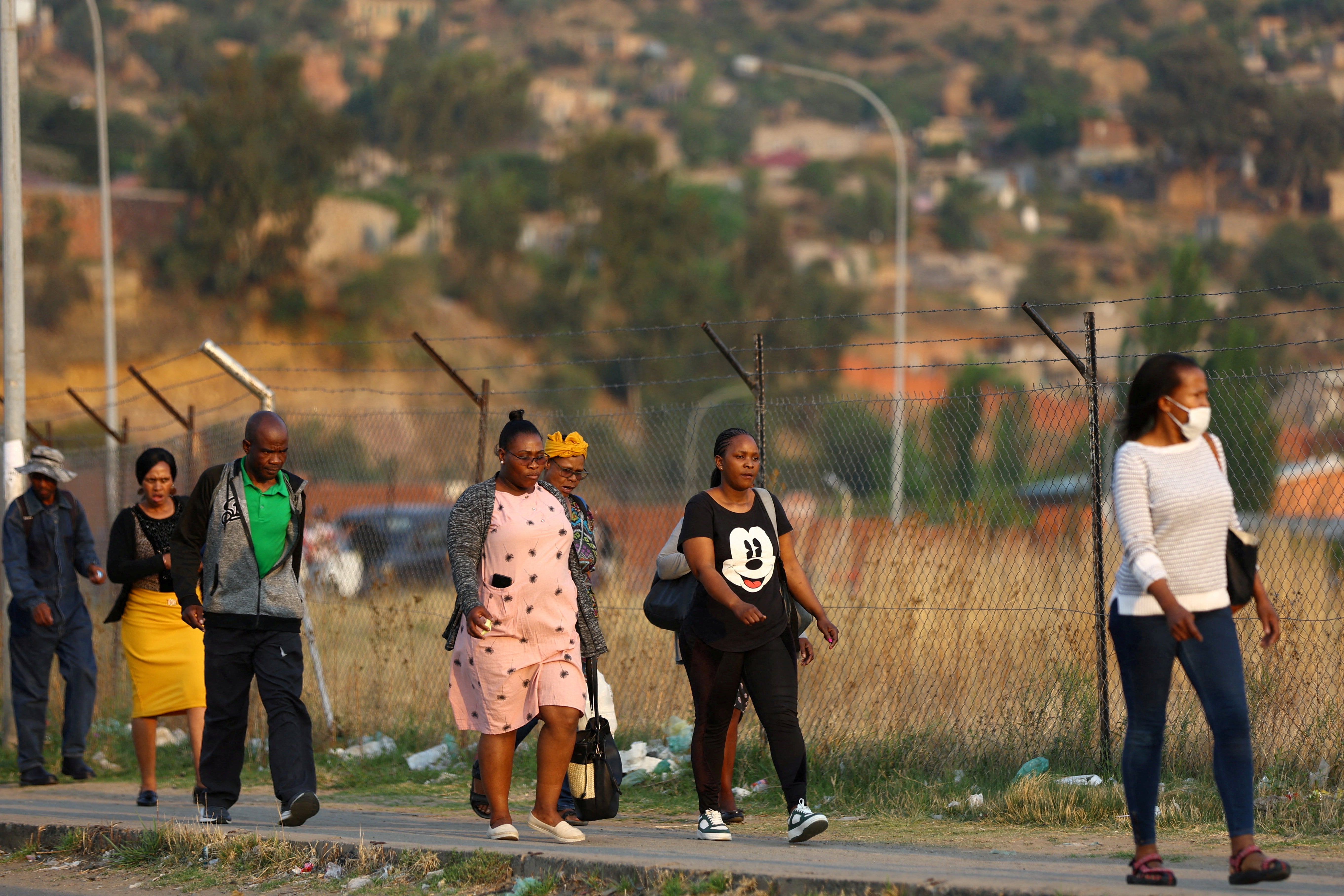
An economic analyst says the 50 percent reciprocal trade tariff on Lesotho will kill the tiny southern African kingdom that the U.S. president ridiculed last month.
It was the highest levy imposed by U.S. President Donald Trump in his sweeping new tariffs on global trading partners on Wednesday, upending decades of rules-based trade and threatening cost increases for consumers.
Lesotho, which Trump described in March as a country "nobody has ever heard of", is one of the world's poorest nations with a gross domestic product of just over $2 billion.
Its exports to the United States, which in 2024 totalled $237 million, account for more than 10 percent of its GDP, with the large trade surplus mostly made up of diamonds and textiles, including Levi's jeans.
Trump said the "reciprocal" tariffs were a response to duties and other non-tariff barriers put on U.S. goods.
Lesotho charges 99 percent tariffs on American goods, according to the U.S. administration.

In Africa, the move signalled the end of the AGOA (African Growth and Opportunity Act) trade deal that was supposed to help African economies develop through preferential access to U.S. markets, trade experts said.
It also compounded the pain after Trump dismantled USAID, the government agency that was a major supplier of aid to the continent.
"The 50 percent reciprocal tariff introduced by the U.S. government is going to kill the textile and apparel sector in Lesotho," Thabo Qhesi, a Maseru-based independent economic analyst, told Reuters.
Oxford Economics said the textile sector, with some 40,000 workers, was Lesotho's biggest private employer and accounted for roughly 90 percent of manufacturing employment and exports.
"Then you are having retailers who are selling food. And then you have residential property owners who are renting houses for the workers. So this means if the closure of factories were to happen, the industry is going to die and there will be multiplier effects," Qhesi said.
"So Lesotho will be dead, so to say."

The government of Lesotho, a mountainous nation of about two million people that is encircled by South Africa, had no immediate comment on the trade tariffs on Thursday.
Its foreign minister told Reuters last month the country, which has one of the highest HIV/AIDS infection rates in the world, was already feeling the impact of the aid cuts as its health sector had been reliant on them.
The formula used to calculate the U.S. tariffs took the U.S. trade deficit in goods with each country as a proxy for alleged unfair practices, then divided it by the amount of goods imported into the United States from that country.
The resulting tariff equals half the ratio between the two, meaning countries import only small quantities of U.S. goods, such as Lesotho and Madagascar, have been hit with more punitive tariffs than much richer countries.
That is also the case for Vietnam, Nicaragua and Cambodia, for which exports to the United States account for more than 25 percent of GDP, according to Oxford Economics.
One corn vendor in Maseru, Sekhoane Masokela, saw Trump's announcement as a reason to seek out new markets.
"His (Trump's) is not the only country, so he is giving us an opportunity to cut ties with him and look for other countries. It is evident that he no longer wants anything to do with us," Masokela said.
Trump tariffs panic Wall Street as stock market plunges at open: Live updates
EU leaders condemn Trump’s ‘catastrophic’ tariffs as trade war opens up
EU leaders condemn Trump’s ‘catastrophic’ tariffs as trade war opens up
Trump tariffs live: UK reveals 400-page list of US goods for potential retaliations
Trump is behind a ‘spiritual revival’ in the U.S,’ says Karoline Leavitt
Sen. Ted Cruz flies into a rage with Sen. Amy Klobuchar over ‘radical judges’







